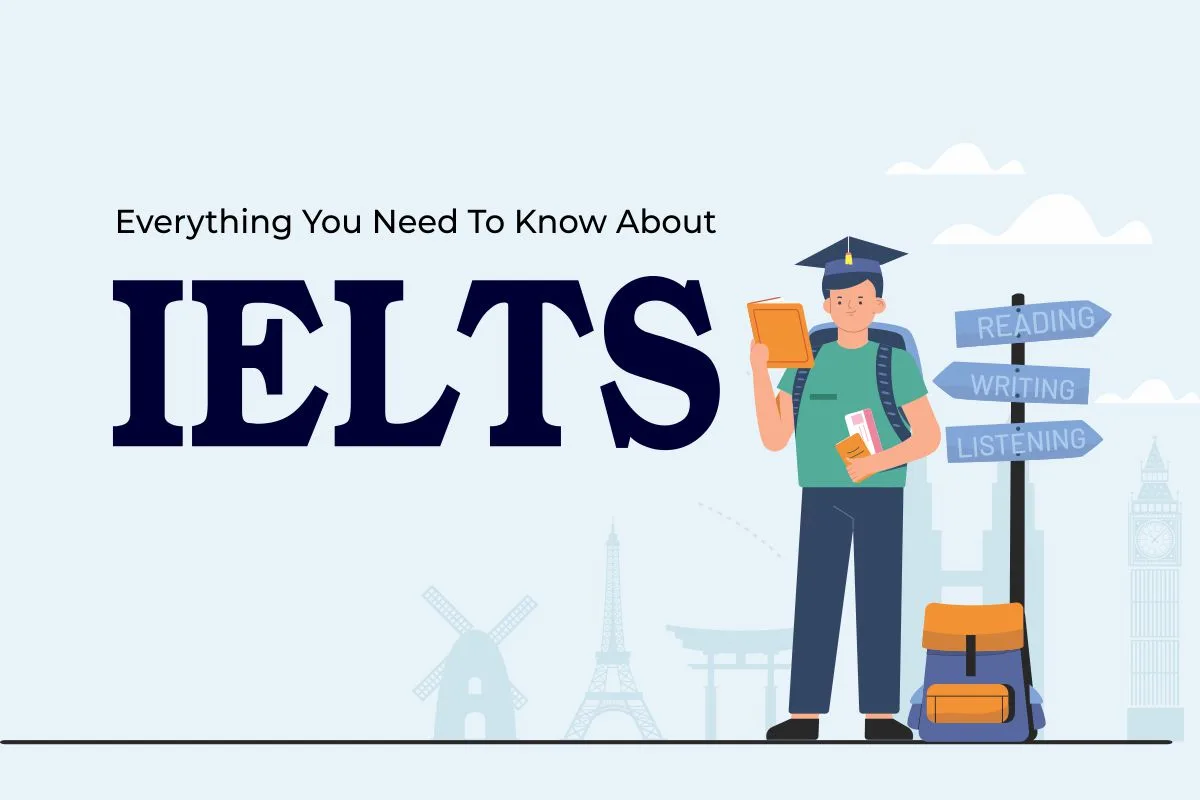The IELTS (International English Language Testing System) is a widely recognized standardized test designed to evaluate the English language proficiency of non-native English speakers. It is commonly used for purposes such as immigration, work, and study in English-speaking countries.
Scoring in the IELTS (International English Language Testing System) exam is based on a band score system, ranging from 0 to 9. Each band score corresponds to a level of English proficiency and your overall score is an average of the scores you receive in the four main sections of the test: Listening, Reading, Writing, and Speaking.
It’s important to note that there are no pass or fail scores in IELTS. Your score reflects your level of English proficiency, and the band score you need depends on your specific goals, such as university admission, immigration, or job requirements. Different institutions and organizations may have different score requirements, so it’s essential to check their specific criteria.
There are two main types of IELTS exams: Academic and General Training. The Academic module is typically required for university admissions, while the General Training module is often used for immigration and work-related purposes.
IELTS is known for its fairness and reliability, making it a popular choice for individuals seeking to demonstrate their English language skills for various personal and professional goals.
When and how often can you take the IELTS exam?
You can take the exam almost year-round, with test dates available weekly for both computer-delivered and paper-based formats. Availability depends on your chosen test center and the type of test (Academic or General Training). It’s recommended to book your slot well in advance, especially during peak times.
Eligibility Criteria
- Age: Anybody aged 16 or above can take this examination, irrespective of their gender, nationality, or background.
- Academic Level: IELTS offers two main versions: Academic and General Training. The Academic version is typically taken by those applying for higher education programs, while the General Training version is used for immigration and employment purposes. It’s important to choose the version that aligns with your goals and needs.
- Identification: You must bring acceptable identification (usually a valid passport) with you on test day. Failure to provide proper identification may result in being denied entry to the test.
- Test Centres: Ensure that there is an available IELTS test centre in your area and choose a test date that works for you.
What is the IELTS 2025 Syllabus?
- Listening: The Listening section assesses your ability to comprehend spoken English through four audio segments, covering diverse topics and accents. Test-takers answer questions based on the content, including multiple-choice, matching, and note completion.
- Reading: The Reading section evaluates your English comprehension skills using three lengthy passages from sources like books, journals, or newspapers. Questions include multiple-choice, True/False/Not Given, and matching headings.
- Writing: The Writing section assesses your writing and organizational skills. It has two tasks:
- Task 1 (Academic): Describing visual data (e.g., graphs).
- Task 1 (General Training): Writing a letter.
- Task 2 (Both): Composing an essay expressing an opinion, argument, or solution.
- Speaking: The Speaking section evaluates spoken English proficiency through a face-to-face interview. It comprises three parts:
- Introduction and Interview (General questions)
- Long Turn (One-minute prep, then speak on a given topic)
- Discussion (In-depth discussion on the Part 2 topic).
Overall, the syllabus is designed to evaluate your English language skills in various real-life situations, making it relevant for academic, immigration, and professional purposes. To prepare effectively for the exam, familiarize yourself with the format and content of each section, practice with official IELTS materials, and consider taking preparation courses if needed.
How to Prepare for IELTS 2025?
- Understand the Test Format: Know the differences between the Academic and General Training versions, and choose the one that aligns with your goals
- Study Materials: Use official IELTS study materials, – Explore online resources, such as IELTS websites, blogs, and YouTube channels offering tips and practice exercises.
- Focus on Listening Skills, Reading Skills, Writing Skills, Speaking Skills
- Mock Tests: Take full-length mock IELTS tests under timed conditions to simulate the actual test experience. Review your answers and identify areas for improvement.
- Time Management: Develop time management skills to allocate the right amount of time to each section during the actual exam. Practice answering questions under timed conditions to improve efficiency.
- Exam Strategies: Learn test-taking strategies for each section, such as skimming and scanning in Reading, and note-taking in Listening. Practice eliminating incorrect answer choices in multiple-choice questions. Regular practice and a well-rounded preparation strategy will increase your confidence and readiness for the IELTS exam.








